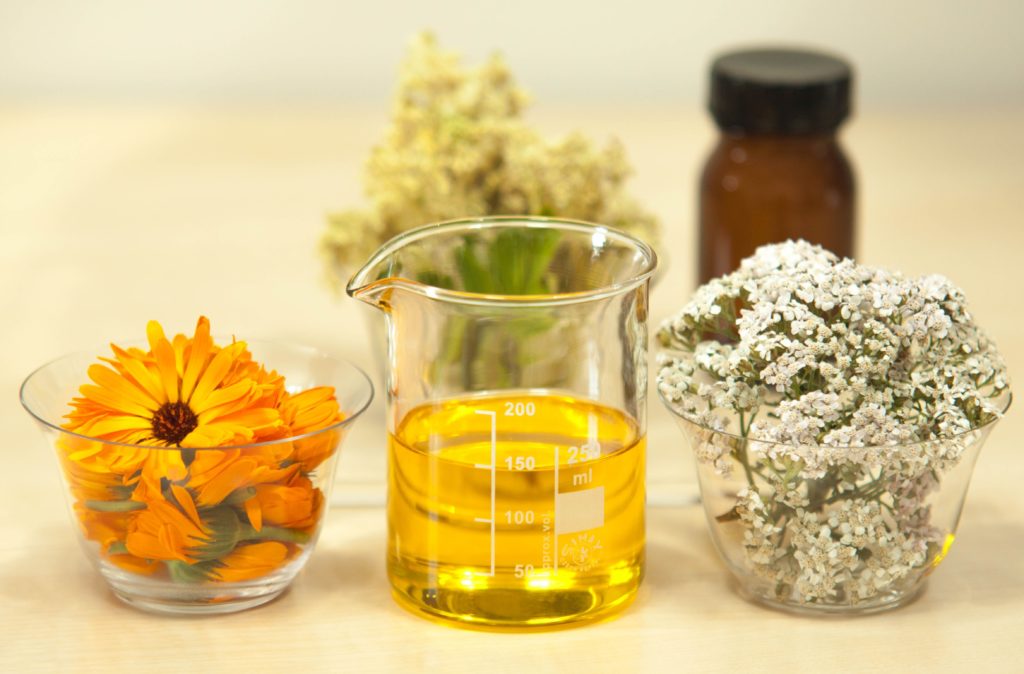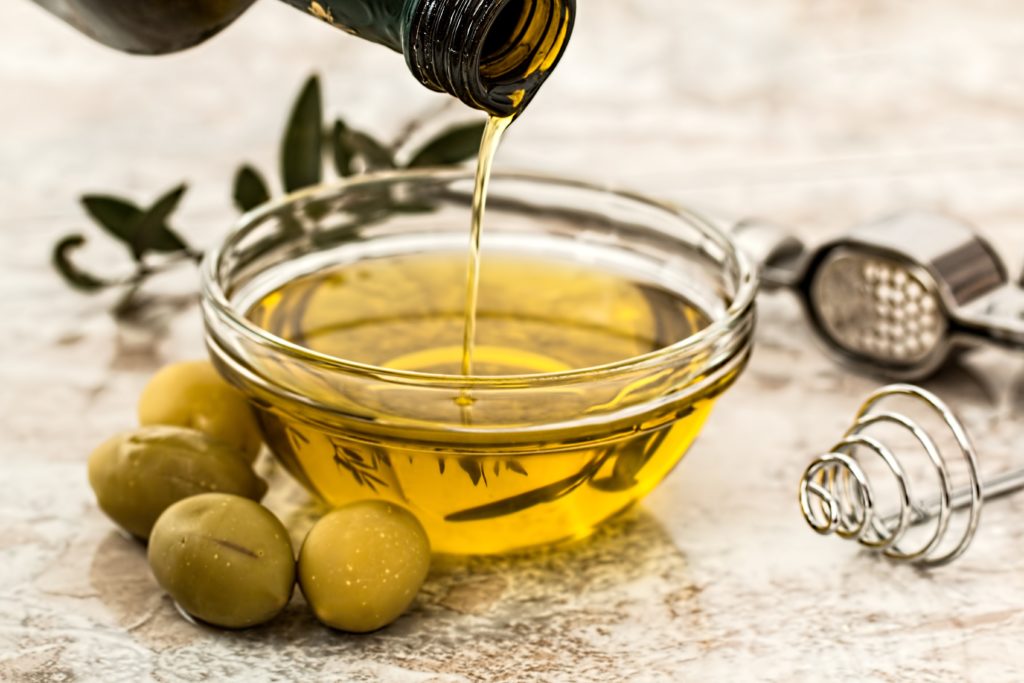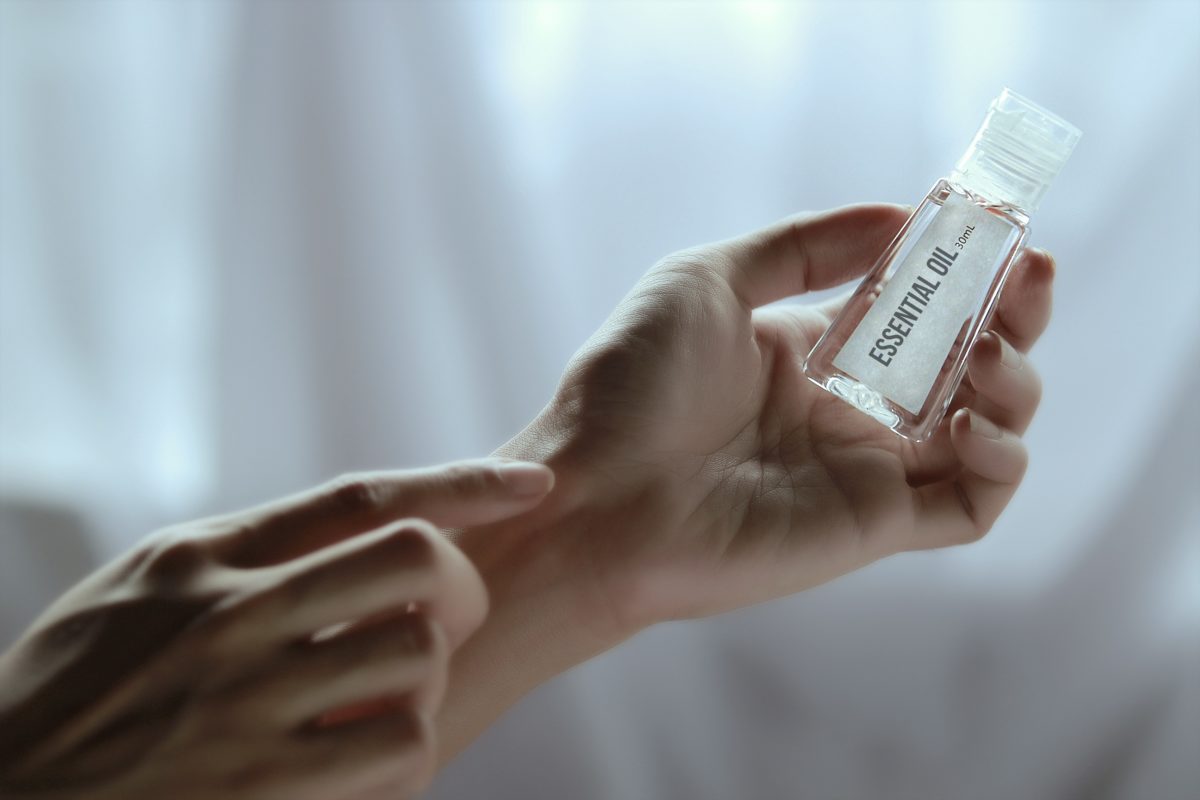They are seemingly everywhere. And they do seemingly everything: cooking, cleaning, fighting off colds and other maladies. But what are essential oils? And do essential oils really work?
Essential oils are nothing new, of course. Essential oils have lived inside of vegetation since earth’s formation, giving living things their “essence.” Even ancient societies like the Romans, the Persians, the Greeks and the Egyptians tapped into the power of essential oils.
But only recently have health and beauty brands convinced consumers that essential oils have something to offer them. Are you interested in exploring essential oils and their supposed benefits? If so, here’s a primer and what they are, as well as an answer to the real question: Do essential oils really work?

What are Essential Oils?
All plants have fragrant essences. These essences exist most often just beneath the bark of trees, the peels of fruit and the leaves of plants and flowers. Fragrant essences live in plant cells, and they survive on energy from the air, water, soil and the sun. How do we access fragrant essences? They release whenever a plant is crushed, steamed or pressed.
But turning a plant into a consumer essential oils product isn’t easy. Fragrant essences are extremely concentrated inside the plants where they live, which means it takes a lot of a certain type of plant to extract a meaningful amount of fragrant essence. For example, as PubMed Health notes, it takes more than 200 pounds of lavender to create 1 pound of essential oil.
What are Essential Oils Commonly Used For?
Search online and you’ll find innumerable uses and applications for essential oils. In fact, Dr. Axe took the time to list out more than 100 ways essential oils can be used. These uses fall into 4 broad categories: cleaning and home, spa and relaxation, skin and beauty, as well as remedies and natural medicine.
Check out the list, which includes a number of fun and offbeat ideas. For example:
- Repelling Mosquitos
- Baking Cookies
- Deodorizing Shoes
- Fighting Allergies
- Freshening Breath
- Smoothing Wrinkles
Popular Types of Essential Oils
As mentioned, manufacturers can create essential oil products by extracting the fragrant essence of almost any plant species. But some fruits, plants, and trees are used more often than others. Some of the most popular essential oils are made from:
- Lemon Grass
- Lavender
- Frankincense
- Pine Needle
- Grapefruit
- Eucalyptus
- Peppermint
- Tangerine
- Cinnamon Leaf
- Orange
- Lime
- Rosemary
- Spearmint
- Clove Bud
- Hemp oil
If you’re new to essential oils, you may want to check out a complete kit that includes a sampling of different types of essential oils. If you’re interested in my recommendations, check out these essential oil sets from leading brands.
Are Essential Oils Safe?
Are essential oils safe? The short answer: Yes, but only if you take the right precautions before using them. The Federal Drug Administration does not regulate essential oils, which means manufacturers do not need approval before bringing new products to the open market.
The National Association for Holistic Aromatherapy offers a handy guide for using essential oils safely. The organization suggests taking the following precautions:
- Use Quality Products: Look for essential oils that are as pure as possible. Any additives or other alterations to authentic essential oils can increase the possibility of adverse reactions.
- Check the Ingredients: Some essential oils can cause reactions when applied to the skin. If you have sensitive skin, be careful with oils that include citronella, citral and other aldehydes, as well as phenols like eugenol and cinnamic aldehyde.
- Apply Using Safe Methods: Inhaling essentials oils is typically the safest application method. Just be sure to limit exposure to less than 1 hour. Dermal or skin applications are more likely to create adverse reactions, so exercise caution when using the phenols and aldehydes mentioned above.
- Dilute the Oils: Essential oils must be properly diluted for safe application. Most consumer products are either pre-diluted or provide instructions for safe dilution and application. Be sure to read labels and instructions before using.
- Stay Away From Damaged Skin: Never apply an essential oil to inflamed, damaged or diseased skin, as essential oils can prolong these skin conditions.
- Be Careful With Children: Young children are far more sensitive to essential oils than adults. Make sure essential oils are highly diluted before applying to a child, and stay away from birch and wintergreen altogether — they are too rich in peppermint and methyl salicylate for a child to use them.
Also, because essential oils are just now catching on as widespread consumer products, there’s not much research on them or their effectiveness — yet.
Do Essential Oils Get Results?
So, do essential oils really work? As with so many trending health and wellness products, it’s going to take some time for the research to catch up to the proliferating use of essential oils.
But we’re not without some scientific studies that examine the efficacy of essential oils. Of course, these studies can only address one or a few applications at a given time. So far, we have access to studies that look at:
- The effect of essential oil-infused mouthwash on dental plaque and gingivitis
- The effect of inhaled essential oils on quality of sleep
- The effect of aromatherapy on pain management during labor
- The effectiveness of aromatherapy in reducing depression among those suffering from dementia
- The effect of oral herbal therapies for treating osteoarthritis
You can see a listing of 68 scientific studies that have addressed essential oils in some way. This base of 68 studies is sure to grow over time as essential oils gain popularity and as researchers have more time to explore different facets of essential oils and their effectiveness.
In the meantime, we’re left without a clear answer to our initial question: Do essential oils really work?

Where to Buy Essential Oils
Essential oils represent an emerging market in the lucrative health and wellness industry. Because of that, the market is flooded with options — some of them good and some of them not so good.
Where should you look for essential oils? You can find a wealth of products online using sites like Amazon. But make sure that you’re choosing products from highly rated, established brands. I recently wrote about the top essential oil brands to help consumers identify and use products with track records of success.
Are Essential Oils Right for You?
The essential oils market was worth more than $7.5 billion in 2015, and it’s expected to grow to more than $10 billion by 2022. Clearly, consumers are getting some sort of benefit from using them.
Only you can determine whether or not essential oils are right for you and your lifestyle. But, given the sheer number of ways essential oils can be used, it’s a good idea to identify a challenge you’re experiencing and then to test out an essential oil to see if it helps. Who knows? You may just find the remedy or solution you’ve been waiting for.
Hailey Flynn writes about women’s fashion, health, and beauty for ReviewBounce.com. She is passionate about wellness and helping others feel good as they live the lives they’ve always imagined. If you have questions about essential oils or anything related, get in touch at hailey@reviewbounce.com.

